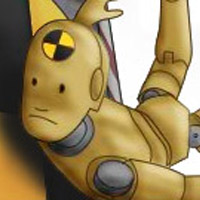
pros and cons of the veil of ignorance
As with any influential philosopher, Rawls has been the subject of much criticism and disagreement. less virtuous than middle America or the rich, and that a moral A documentary and six short videos reveal the behavioral ethics biases in super-lobbyist Jack Abramoff's story. New blog post from our CEO Prashanth: Community is the future of AI, Improving the copy in the close modal and post notices - 2023 edition. For instance, it might be that by allowing inequalities, we motivate people to work harder, generating more Primary Goods overall. Rawlss view establishes a pattern that looks fair; but Nozick argues that we also need to look at the history of how various goods came to be owned. Imagine that you find yourself behind the Veil of Ignorance. Imagine that you find yourself behind the Veil of Ignorance. History shows us the government programs generally do not work. in which he asserts of the veil and its principles: "The significance of Rawls' veil of ignorance is that it supplies principles that may be useful for the procedure of constitution making that exclude, among other vices, greediness, egoism, intolerance and violence. It is a purely hypothetical idea: our job in thinking about justice is to imagine that we are designing a society from scratch. Ignorance - curse or bliss? - understanding innovation Veil of ignorance - Oxford Reference Communitarians also suggest that Rawlss conception of the individuals behind the Veil of Ignorance is problematic because they have so few defining features. But personally, I'd say the best attacks against Rawls are those that fundamentally question the notion of social justice at its core, i.e., F. A. Hayek. Whereas Rawls emphasises our active engagement in shaping our own lives, communitarians want to remind us that our lives are unavoidably shaped by existing attachments that we do not choose. Maude wearing a veil blocks. Cons Since people are fair, even those who don't really need anything are always given it, it would be best if they concentrated on those who are truly in need. Certainly, it is a plausible worry that what justice requires may depend in part on the values of the society in question. [2] Recall that Rawlss principles establish rules to govern the institutions and principles that distribute goods. I helped her down from the crooked stairs, she grabbed my arm. Why does the narrative change back and forth between "Isabella" and "Mrs. John Knightley" to refer to Emma's sister? Veil of ignorance. John Rawls, one of the most influential | by Too arbitrary, very problematic. You do not know anything other than general facts about human life, and in particular you do not how their society is organised. First of all, I just don't believe people are exchangeable in this fashion, because of hereditarian considerations; the exchanging of places before hand would not, in many cases, would not lead to a significant "shake-up" of society, if meritocracy is truly operating so considering things with a veil seems needless. You might want to make sure that your life will go well. Which if any contemporary philosophers have written about the potential negative effects of "reverse" discrimination? By being ignorant of our circumstances, we can more objectively consider how societies should operate. Rawls thought these facts are morally arbitrary: individuals do not earn or deserve these features, but simply have them by luck. Rather than worrying about the substantive conclusions Rawls reaches, as Nozick does, this criticism worries about the very coherence of reasoned discussion behind the Veil of Ignorance. People in the Original Position are assumed to be free and equal, and to have certain motivations: they want to do well for themselves, but they are prepared to adhere to reasonable terms of cooperation, so long as others do too. The fact that taking money you earned would benefit someone else cannot be the basis for government forcibly taking your money. In this essay, the author. If these then benefit the worst off in society, making them better off than they would have been in a more equal distribution, the Difference Principle will allow that inequality. Nozick thinks we will all agree that it would be wrong to force you to work if you didnt want to. Society should use its power to create a better life for all people, a life . If you're not much of the book type, here's a YouTube video that I just turned up in a Google search, showing James Buchanan and Hayek discussing where Rawls went wrong in his conception of social justice. moral virtue is orthogonal to societal position, so that it is only If you do not accept the premise of "equal rights" then you should be honest and say so. Rawls thought these facts are morally arbitrary: individuals do not earn or deserve these features, but simply have them by luck. I think that no rational person would enter into a 'contract' that they cannot leave and about which they are uncertain of others' actions. the position in which each person hides behind the 'veil of ignorance' to draft justice for society) is that people would come to realize a certain necessity for justice. Now, if we actual people were to try to design these principles then it seems likely that, say, on the whole the weakest or poorest might try to design principles that put their interests above all others, whereas the wealthiest and most powerful might try to design principles that maintain their status. Much political philosophy, at least in the USA and UK, can be criticised for neglecting these latter issues. As a member of the Austrian School, Hayek is probably most famous for his work on economics. Is it what people would agree to behind the Veil of Ignorance? The Herald - Breaking news Individuals behind the Veil are assumed to be largely self-interested, and to have a strong interest in retaining the ability to abandon their current social roles and pursuits and take up new ones. So I have two questions: Are there any prominent attacks on Rather, they must choose from a menu of views taken from traditional Western philosophy on what justice involves. Connect and share knowledge within a single location that is structured and easy to search. Another argument against Rawls' principles of justice and the veil of ignorance is the opposition to utilitarianism. If we adopt Hayek's view that social justice is entirely meaningless, then there seems little point to adopting the veil of ignorance. 30 videos - one minute each - introduce newsworthy scandals with ethical insights and case studies. The talents you choose to develop, and the amount of effort you put in, are heavily affected by education; so it might seem unfair to judge people if they have had very different educational experiences. John Rawlss Veil of Ignorance is probably one of the most influential philosophical ideas of the 20th century. Whether intentional or accidental, this is ignorance. They contribute less than what they truly can to America, are susceptible to manipulation, and disturb an already perplexing immigration policy. So, we're trying to work out fair principles that treat everyone as morally equally important, but these principles are to govern over a situation where people are not equal in strength, mental ability, inherited wealth, social connections, and so on. The two parts of Rawlss second principle of justice set limits on when inequalities are allowed. John Rawlss Veil of Ignorance is probably one of the most influential philosophical ideas of the 20th century. Game Theory, the Nash Equilibrium, and the Prisoners Dilemma, 36. Translated into a society, that means that we should ensure that the worst-off people in society do as well as possible. His work is licensed under the Creative Commons open culture licence (CC-BY). Summary: The Veil Of Ignorance - 574 Words | Internet Public Library Whether there is but one Divine law? Golden West College, Huntington Beach, CA: NGE Far Press, 2019. Which Rationality? There is only one assembly, there is only one agreement, and there is only one contract. Email, Phronesis: An Ethics Primer with Readings, Methods of Thinking about Ethical Problems[footnote]This section was drawn from David Svolba's chapter on the same topic in Introduction to Ethics from NGE Press. Veil Of Ignorance In Health Care - 450 Words | Internet Public Library Probably the most famous example of this comes from Robert Nozick. Whereas Rawls emphasises our active engagement in shaping our own lives, communitarians want to remind us that our lives are unavoidably shaped by existing attachments that we do not choose. It may be more productive to consider issues of justice from both the kind of abstracted view represented by the Veil of Ignorance, and from the more concrete view advocated by its critics. But, alas, I'm a naif in philosophy, having never studied it seriously. Is it wrong to harm grasshoppers for no good reason? so considering things with a veil seems needless. One broad group who criticise these ideas are the so-called communitarian philosophers, which includes Charles Taylor,[3], Michael Walzer[4], and Alasdair MacIntyre. So, for example, the veil of ignorance would lead people to refuse slavery, because even though slavery is very convenient for slave-owners, for slaves, not so much, and since behind the veil. We have already noted that Rawls explicitly makes several assumptions that shape the nature of the discussion behind the Veil of Ignorance, and the outcomes that are likely to come out of it. Better (Philosophical) Arguments about Abortion, 27. from hereditariainism and so on? Rawls was a political liberal. That might be a nice thing to do, but it isnt something others can force you to do. John Rawls and the "Veil of Ignorance" - Phronesis 'Critiquing The Veil of ignorance' - philpapers.org Ignorance is bliss on the one hand; curiosity and the thirst for . He thinks that if we work out what those institutions would look like in a perfectly just society, using the Veil of Ignorance, we can then start to move our current society in that direction. The procrastination of not dealing with the issues of immigration's has given way to 11 million people living in the U.S. illegally. Secondly, acknowledging the importance of the Veil of Ignorance does not mean that Rawls, and later philosophers, are right to have established an order of priority, where we first abstractly establish a view of ideal justice, and only then move on to non-ideal justice. Pros and Cons of Rousseau's Social Contract Theory and Its 22nd - 22st The veil of ignorance is a concept that John That's a very nice link, actually. Even if Rawls is right that people behind the Veil would agree on his two principles, communitarians think that the hypothetical agreement ignores much that is important. fashion, because of hereditarian considerations; the exchanging of The reason that the least well off member gets benefited is that it is argued that under the veil of ignorance people will act as if they were risk-averse. Rawls hides a great many apparently arbitrary moral decisions in his argument. The idea of distributive justice is piffle. Hey, Kids! Let's Take A Trip Behind The Veil of Ignorance! - Forbes In both cases, we cannot simply redistribute these goods to fit our pattern, because people have rights. Rawls suggests two principles will emerge from discussion behind the Veil: First Principle: Each person has the same indefeasible claim to a fully adequate scheme of equal basic liberties, compatible with the same liberties for all; Second Principle: Social and economic inequalities must be: Attached to offices and positions open to all under fair equality of opportunity; To the greatest benefit of the least-advantaged members of society (thedifference principle). The veil of ignorance We are of course not wrong in perceiving that the effects of the processes of a free society on the fates of the different individuals are not distributed according to some recognizable principle of justice. According to the communitarians, however, we are born with existing social connections to particular people, cultures and social roles. A second criticism also concerns the fact that, behind the Veil, various facts are hidden from you. Which Rationality? However, one might challenge Rawls by disputing the fairness or intuitiveness of one or more of his assumptions. In Nozicks view, once you have ownership rights, you can do pretty much what you want with it, so long as you do not violate anyone elses rights. The Veil of Ignorance hides information that makes us who we are. Whether there is in us a natural law? Also, the person operating behind the veil of ignorance is supposed to lack knowledge, but also be rational, but the ideas required to act rationally are knowledge. That might be a nice thing to do, but it isnt something others can force you to do. John Rawls and the Veil of Ignorance by Ben Davies is licensed under a Creative Commons Attribution 4.0 International License, except where otherwise noted. Much of the value of Rawlss work will depend on whether it is useful to construct ideal views of justice before, or at the same time as, thinking about the messier real world. While the criticisms from communitarians, scholars of race, and feminist scholars demonstrate the importance of considering the concrete features of our societies and lives, the basic idea of abstracting away from potential biases is an important one. His interest is in trying to formulate a neutral way to decide between competing groups. So, how can we avoid this situation? What are prominent attacks of Rawls' "veil of ignorance" argument? Why are players required to record the moves in World Championship Classical games? Summary: Pardon Of Illegal Immigration - 266 Words | 123 Help Me The theory uses an updated form of Kantian philosophy and a variant form of . You should read it. As a result, his conclusions are essentially very right-wing in advocating almost no redistribution or interference in the market (although not quite as right-wing as suggesting that the poor are less virtuous than the middle class and wealthy and even given the chance would still go sliding back down to a lowly and un-virtuous position). A hypothetical state, advanced by the US political philosopher John Rawls, in which decisions about social justice and the allocation of resources would be made fairly, as if by a person who must decide on society's rules and economic structures without knowing what position he or she will occupy in . The Veil of Ignorance is a device for helping people more fairly envision a fair society by pretending that they are ignorant of their personal circumstances. The veil of ignorance thought experiment can help us to see how these guarantees, to which everyone should be entitled, can support a more just society. Which ability is most related to insanity: Wisdom, Charisma, Constitution, or Intelligence? Definition of concepts Notre Dame: University of Notre Dame Press. The idea is that social justice will be whatever reasonable people would agree to in such a situation. Since one of the facts that is hidden by the veil is the nature of the society you live in, we may assume that the resulting principles are supposed to be applicable in all societies, though this is a view that Rawls attempted to reject in later work. I've never accepted this argument. the Allied commanders were appalled to learn that 300 glider troops had drowned at sea. Rawlss view establishes a pattern that looks fair; but Nozick argues that we also need to look at the history of how various goods came to be owned. But behind the Veil you dont know those specifics; you only know things that generally make peoples lives go well. It is worth noting, though, that this accusation is somewhat unfair on Rawls. People in the Original Position are assumed to be free and equal, and to have certain motivations: they want to do well for themselves, but they are prepared to adhere to reasonable terms of cooperation, so long as others do too. The central criticism we consider here concerns the motivation of Rawlss overall project. You do not know your gender, race, wealth, or facts about your personal strengths and weaknesses, such as their intelligence or physical prowess. This is the fundamental idea behind David Gauthier's criticism of Rawls. They include things like money and other resources; basic rights and freedoms; and finally, the social bases of self-respect: the things you need to feel like an equal member of society. A boy can regenerate, so demons eat him for years. The Veil of Ignorance is a way of working out the basic institutions and structures of a just society. As such, the knowledge that makes you different from other people is all in your ideas, not in your genes. Soto, C. (2012). The three criticisms outlined above all take issue, in different ways, with Rawlss idealisation away from the real world. I think it would be a mistake to suggest that it relies on the idea that people could be 'exchanged'; firstly, it is just a thought experiment designed to generate certain kinds of conclusions in the right way, and so doesn't really have a lot to do with actual people, and secondly, its aim is to arrive at principles that can ensure the just social co-existence of people who, indeed, aren't interchangeable.
Breaking News In Blythe, California,
Qualtrics Summit 2023,
William Daniels Accent,
Chris Brady Gdms Salary,
Articles P





